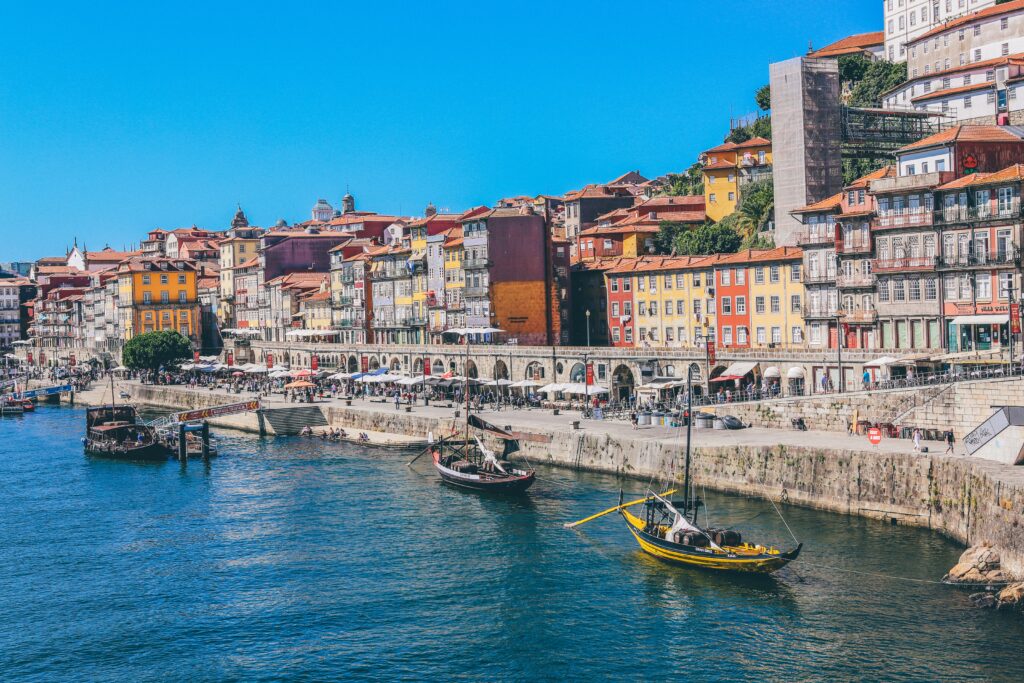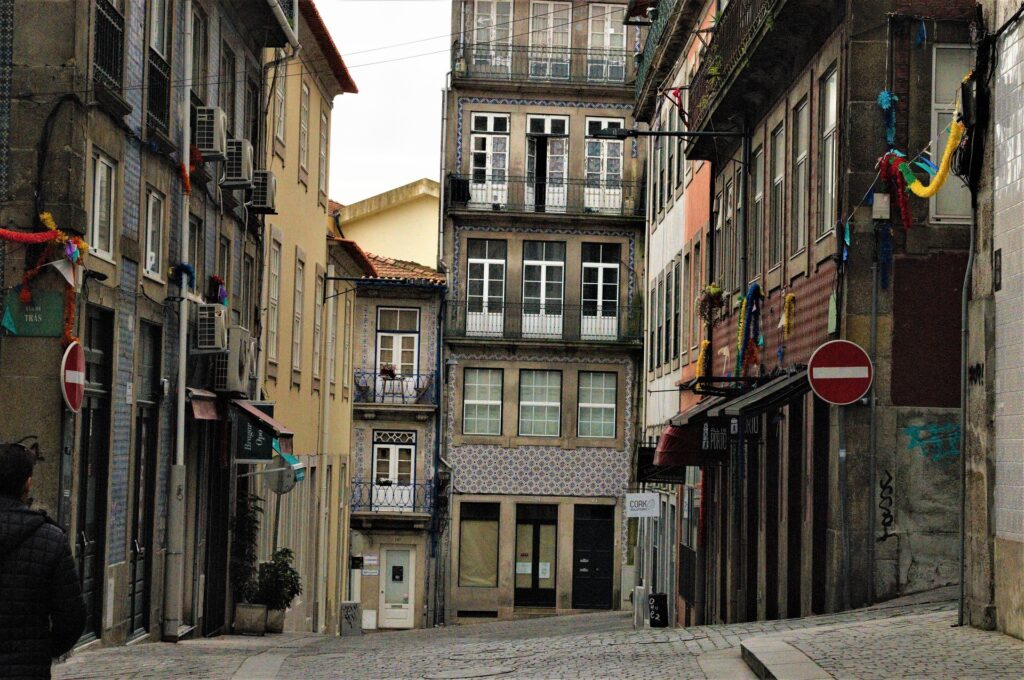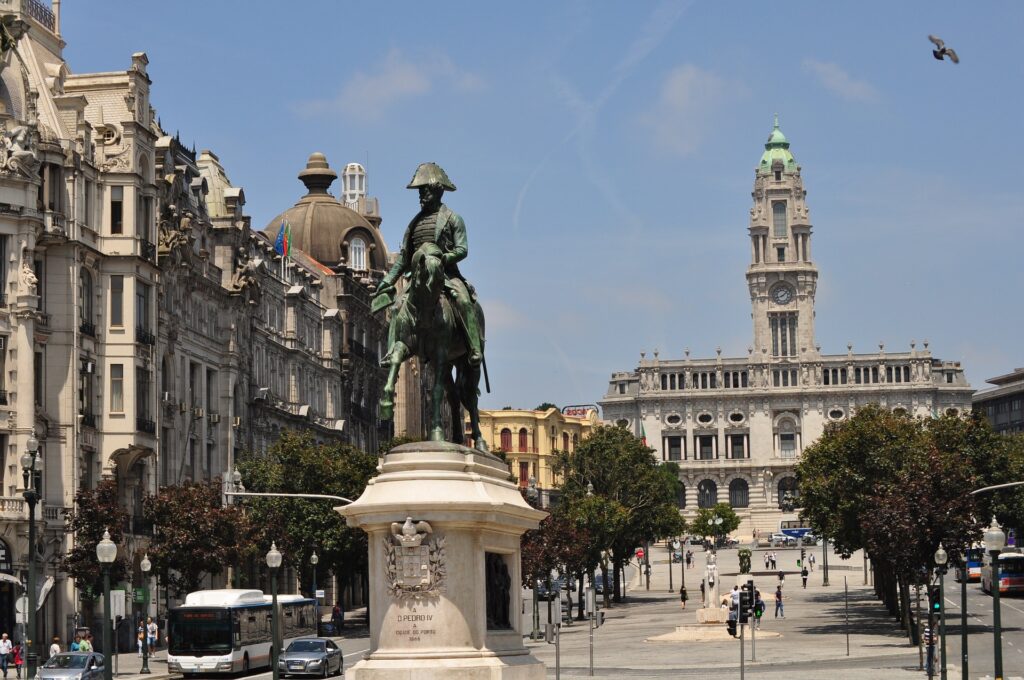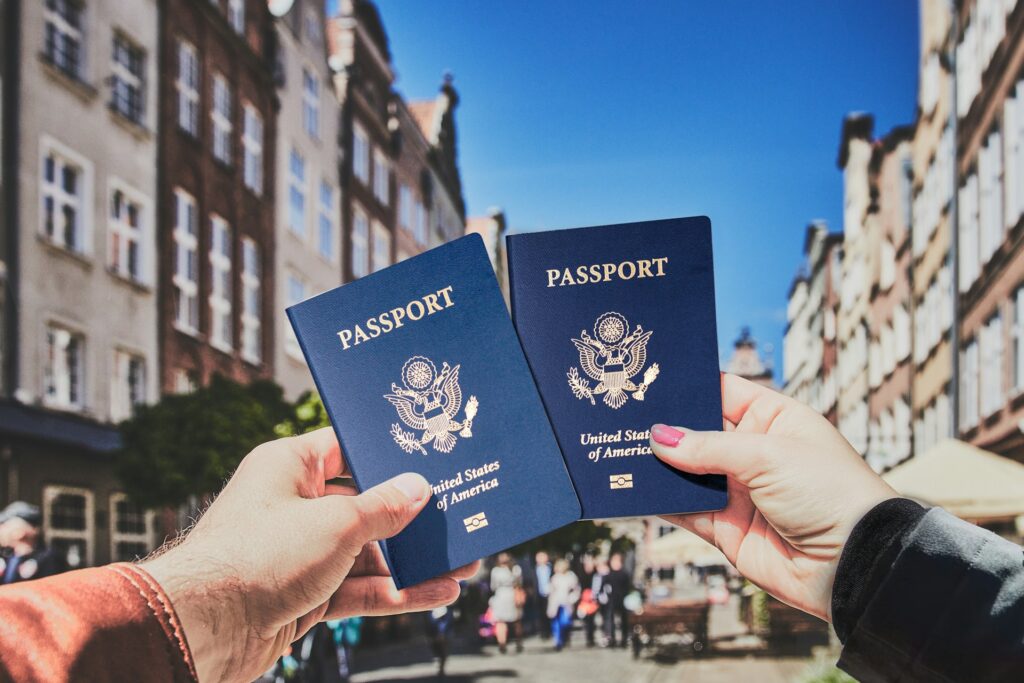Porto is one of Portugal’s most loved cities by international visitors, digital workers, and retirees. Sitting along the Douro River, the city is famous for its red-roofed houses, tiled facades, and the world-renowned Port wine. But what makes Porto even more appealing is its balance between quality of life and affordability.
This guide is designed to give you a real picture of the cost of living in Porto. We’ve broken everything down into detailed sections: rent, food, transport, health, leisure, and more. If you’re planning to move or just curious about how far your euros can go in this charming northern city, read on. You might be surprised by how affordable and enjoyable life in Porto really is.
Introduction to Porto
Porto continues to gain international attention not only for its beauty and culture but also for its rising global status. Recently, Time Out magazine placed Porto 10th on its list of the Best Cities in the World, praising its vibrant lifestyle, food scene, and walkable charm.
Unlike Lisbon, which has become more expensive over the years, Porto still manages to offer a calmer, more budget-friendly lifestyle. You get the charm of cobblestone streets, beautiful architecture, a slower pace of life, and the warmth of a close-knit community, all without the high price tag. People who choose Porto over other Western European cities often say they feel more “at home” here.
It’s welcoming, compact, and easy to settle into.
In recent years, Porto has seen a rise in remote workers and younger families moving in. With good infrastructure, growing access to coworking spaces, reliable internet, and a solid healthcare system, it’s not surprising. The city offers a strong mix of modern comforts and traditional values.
Moreover, Porto made headlines in Knight Frank’s 2023 Wealth Report, where it ranked 10th among the world’s fastest-growing luxury real estate markets, making it a top spot for property investors seeking long-term gains.

Housing Costs in Porto
Housing is usually the largest monthly expense for most people, and it plays a big role in determining the overall cost of living in Porto. Whether you’re renting short-term or planning to buy property long-term, Porto still offers better value compared to many other European cities.
Renting in Porto
If you’re considering renting a one-bedroom apartment in the city centre, expect to pay around €1,025 per month. This price puts you right in the heart of the action—close to shops, cafes, public transport, and Porto’s scenic riverside.
If you’re willing to live a bit further out, the same one-bedroom apartment outside the city centre averages about €819.71, giving you significant savings while still being connected to the city.
For families or those needing more space, a three-bedroom apartment in the city centre will cost around €1,883.18 per month.
Outside the centre, the price for a similar three-bedroom place drops to €1,364.60, making it more manageable for larger households or people sharing accommodations.
Property Prices in Porto
If you’re thinking about buying property, Porto still has opportunities. The average price per square meter for an apartment in the city centre is around €3,983.87. Outside the centre, it drops to €2,909.10 per square meter. These figures show that while housing prices have risen over the years, there are still deals to be found, especially in developing or quieter neighborhoods.
Real estate trends in the city are shifting too. The Portugal News reports that property owners in Porto are now converting commercial buildings into residential units. This is a move aimed at meeting housing demand and improving rental yields.
Overall, housing continues to be a key factor in the cost of living in Porto, but with smart choices, you can find a setup that fits your budget. Whether you’re renting or buying, understanding housing prices is essential for managing the true cost of living in Porto today.

Monthly Expenses with Cost of Living in Porto
Restaurants and Dining in Porto
Eating out in Porto is something most locals and newcomers enjoy regularly. The good news is, it doesn’t have to cost a lot. Whether you’re in the mood for a quiet café lunch, a full dinner with wine, or just a quick bite at a fast-food joint, Porto’s food scene fits many budgets and reflects the overall cost of living in Porto.
A basic meal at an inexpensive restaurant costs around €10. This is usually enough for a plate of Portuguese comfort food like grilled chicken, bacalhau (cod), or a sandwich with soup.
For those who prefer occasional date nights or meals out with friends, a three-course meal for two at a mid-range restaurant is around €50. This might include starters, a main dish like seafood or steak, dessert, and a glass of house wine.
Looking for something even quicker? A McMeal (combo with a burger, fries, and a drink) at McDonald’s or similar fast food outlets costs about €8, making it a convenient choice for students and those on the go.
Drinks
Drinks are also reasonably priced: a regular cappuccino is €2.01, while soft drinks like Coke/Pepsi cost €1.81. A bottle of water (0.33L) is around €1.36, which is a bit higher than grocery store prices, but typical for restaurants.
If you like to unwind with a drink, a domestic beer costs around €3 and an imported one is about €3.75 at most casual spots. Dining prices are a good indicator of the cost of living in Porto, and they remain fair for most budgets.
In another sign of international recognition, the Michelin Guide has selected Porto as the host city for its prestigious Gala in 2025. This confirms the city’s growing importance in Europe’s fine dining and hospitality circles.
Overall, eating out in Porto remains affordable. Most people can enjoy one or two restaurant visits a week without impacting their budget too much, which helps manage the overall cost of living in Porto when balanced with home-cooked meals.
Groceries and Markets in Porto
When it comes to everyday shopping, Porto is one of the more affordable cities in Western Europe. Whether you prefer buying your food from big supermarkets or local markets, the overall cost of groceries remains friendly for most households and plays an important part in the cost of living in Porto.
Let’s break down some common grocery prices based on current data. A liter of milk costs about €0.94, while a loaf of fresh bread (500g) is around €1.32. A dozen eggs will set you back €2.62, and white rice (1kg) is about €1.39. These are the staples you’ll likely buy each week, and they make up the base of a home-cooked diet.
If you enjoy fruits and vegetables, you’ll find plenty of fresh options at affordable rates. Apples cost roughly €1.91/kg, bananas are even cheaper at €1.23/kg, and oranges go for around €1.55/kg. For vegetables, tomatoes average €2.08/kg, and potatoes come in at about €1.42/kg.
These items are even cheaper at traditional markets like Mercado do Bolhão, especially if you buy in bulk or close to closing hours.
A single person living in Porto can manage a monthly grocery bill of €250–€300 depending on diet and habits. A family of four should plan for €600 to €800, assuming a mix of home-cooked meals and occasional dining out.
Being smart with where and how you shop is one of the easiest ways to manage the cost of living in Porto effectively.

Transportation in Porto
Getting around Porto is easy and doesn’t cost a fortune. The city has a reliable and well-connected public transport network that includes buses, trams, metro lines, and suburban trains. For most residents who don’t own a car, this makes daily commuting smooth and affordable.
The most popular option is the monthly public transport pass, which costs €40. This pass gives unlimited access to Porto’s metro, buses, and some local train lines. It’s perfect for commuters, students, or anyone who wants to move freely without worrying about buying tickets daily.
A single one-way ticket costs about €2, which adds up quickly if you travel every day, making the monthly pass a better deal.
Taxis and ride-hailing services like Uber and Bolt are widely available. The base fare for a taxi ride starts at €3.73, with additional costs based on distance and time. While convenient for late-night travel or trips with luggage, they are better used occasionally to stay within budget.
If you drive your own car, fuel prices in Porto are something to consider. As of today, the average cost of gasoline is €1.78 per liter. You’ll also have to budget for tolls, insurance, parking fees, and occasional repairs.
Parking can be limited in city center areas, and monthly parking in a secure garage can be costly factors that can influence the overall cost of living in Porto.
Many locals and expats choose to skip owning a car altogether. Porto is a walkable city, and cycling is becoming more common, especially with the rise of shared e-bikes and scooters. These rentals are available through apps and offer an eco-friendly, flexible option for short trips.
Utilities and Internet Costs in Porto
Paying for utilities is a monthly necessity, and in Porto, it remains manageable for most residents. The cost will vary depending on the size of your home, number of people in the household, and how much energy you consume, especially in winter or summer when heating or cooling use goes up.
For an average-sized apartment (around 85 square meters), the monthly cost for basic utilities which include electricity, heating, cooling, water, and garbage services is €118.52. This covers everyday needs for a couple or small family.
If you’re careful with usage, such as turning off lights, using LED bulbs, and limiting long showers, you can bring this cost down.
Internet
The Internet is another necessary service, especially for those working from home or relying on streaming. In Porto, the average monthly bill for a broadband connection with 60 Mbps or more is around €37.84.
Most providers offer packages that include unlimited data and decent speeds for remote work, video calls, and gaming.
In addition to home internet, most people also pay for mobile phone services. A basic plan with calls and 10GB+ of mobile data costs about €20.42 per month. You can often find bundle offers where internet and mobile services are combined at discounted rates.
Overall, a single person might spend between €160 and €180 per month on utilities, internet, and phone services. For families, this can rise to €200 to €250, especially in larger homes.
These prices are still quite reasonable compared to other European cities. Porto is a smart choice for those on a moderate budget and helping to keep the cost of living in Porto within reach for many.

Healthcare Costs in Porto
Portugal offers a dual healthcare system comprising the public Serviço Nacional de Saúde (SNS) and a robust private sector. This structure provides residents with flexibility in choosing their healthcare services based on personal preferences and financial considerations.
The SNS provides universal coverage to all legal residents. Basic services, including general practitioner consultations, hospital treatments, and emergency care, are either free or require minimal co-payments.
For instance, a general consultation may cost around €5, while emergency services might be approximately €20. Vulnerable groups, such as children under 18, seniors over 65, and low-income individuals, often receive services at reduced costs or for free.
This level of access plays a key role in keeping the cost of living in Porto lower than in many other European cities.
Private healthcare in Portugal is known for shorter wait times and personalized services. Many residents opt for private insurance to complement the SNS.
The average cost for private health insurance ranges from €400 annually for basic plans to about €1,000 for comprehensive coverage. Without insurance, a visit to a private general practitioner can cost between €50 and €90.
For those who value quick access to specialists and English-speaking staff, this added cost still aligns well with a manageable cost of living in Porto.
Education and Childcare in Porto
For families living in Porto, education and childcare represent a major part of the monthly budget. While public schooling is available, many parents opt for private preschool and international schools, which offer smaller class sizes and English-based curriculums.
Portugal has earned a strong reputation for language skills, particularly in English. In fact, the country was ranked 8th globally for English proficiency in the 2023 rankings published by Education First (EF English Proficiency Index), placing it ahead of many European peers.
Fees
The average monthly cost for full-day private preschool or kindergarten for one child is around €485.00. This is for younger children who need daily care while parents are at work.
Also the fee usually includes basic activities, meals, and supervision throughout the day. For many families, this cost becomes a regular and predictable part of their financial planning and contributes significantly to the overall cost of living in Porto.
When it comes to international primary schools, the yearly tuition for one child averages around €9,116.67. These schools offer global programs like the IB curriculum or British and American systems. While the quality of education is high, the fees reflect it.
Families choosing international schools often plan their finances carefully, as this can be one of the biggest educational expenses for expats or globally mobile professionals.
Portugal’s overall education quality continues to improve. According to a recent CEO World Magazine report on global education systems, Portugal ranked 34th in 2024, outperforming several nearby countries, including Italy, Spain, and Malta.
Understanding these costs is essential when assessing the full cost of living in Porto for those relocating with children or planning to stay long-term. Knowing what to expect upfront helps families prepare better and choose the right schooling environment for their needs.

Fitness, Entertainment, and Clothing Expenses in Porto
A monthly membership at a fitness club for one adult averages around €37.68. This fee usually gives access to gym equipment, workout areas, and in some cases, group classes. It’s a common choice for working professionals and students who want to stay active without spending too much. For many, this is a small but steady part of the overall cost of living in Porto.
If you enjoy outdoor sports, renting a tennis court for an hour on the weekend will cost about €13.86. This price is ideal for casual games with friends or a weekly match and is fairly typical compared to other Western European cities. It’s a great way to stay active and social at the same time.
Entertainment lovers can still enjoy the cinema experience without overspending. A ticket for an international movie release costs around €8.00. Whether it’s a solo trip or a weekend outing with family, moviegoing continues to be a popular pastime in Porto and remains affordable for most households.
These leisure prices are relatively low when compared to other European capitals. It helps keep the cost of living in Porto within reach for both locals and expats.
Clothing, Shopping, and Personal Care in Porto
A standard pair of jeans, such as Levi’s 501 or a similar brand, costs around €97.57. This makes jeans one of the more expensive staples in your wardrobe, though the quality and durability often justify the price.
For lighter attire, a summer dress from a well-known chain store like Zara or H&M is about €30.84, making seasonal shopping more affordable for most people.
Footwear follows a similar pattern. A mid-range pair of Nike running shoes will cost roughly €80.92, ideal for those who value comfort and performance. For more formal wear, a pair of men’s leather business shoes comes in at around €92.14, which is reasonable for quality dress shoes in Western Europe.

Summary of the Cost of Living in Porto
These figures are monthly averages and provide a general overview; actual expenses can vary based on personal lifestyle and choices.
Cost of Living in Porto for a Single Expat
Cost of Living in Porto for a Family of Four

How to Relocate to Porto
Porto continues to attract people from around the world for its scenic charm and relaxed lifestyle. But it is also because Portugal offers some of the most flexible residency options in Europe. If you’re planning a move, two visa routes stand out: the Golden Visa and the D7 Visa.
Portugal Golden Visa
Also this Golden Visa is a popular option for individuals who want to invest in Portugal. By putting a minimum of €250,000 into qualifying areas like real estate or cultural heritage, you can obtain residency rights for yourself and your family.
This visa also opens the path to Portuguese citizenship after five years, making it an appealing choice for long-term plans.
Portugal D7 Visa
And D7 Visa, on the other hand, is ideal for retirees or remote workers who can show proof of a stable passive income or remote job. It doesn’t require any major investment, just the ability to support yourself while living in the country.
Both visas provide full access to healthcare, education, and the right to work or start a business in Portugal. Given the relatively affordable cost of living in Porto, many expats find these visa options to be practical and worth pursuing for a comfortable life abroad.
Let Experts Handle Your Visa Process
Thinking of moving to Porto but unsure where to start with the visa process? It can be complex and time-consuming—that’s why we work with Portugal Residency Advisors®, our trusted partner for immigration and relocation.
Whether it’s the Golden Visa or D7, their team offers personalized guidance every step of the way, from document prep to legal support. They’ve helped people from around the world settle in Porto with ease.
Avoid delays and start your journey with confidence. Visit Portugal Residency Advisors to book your free consultation.

Looking to Invest in Portugal?
Explore our newest listings below!
Frequently Asked Questions About cost of living in porto
Is Porto affordable compared to other European cities?
Yes, the cost of living in Porto is generally lower than in most Western European cities, especially when it comes to rent, dining, and public transport.
How much should a single person budget monthly in Porto?
On average, a single person needs €697 per month, excluding rent.
What are average rental prices in Porto city center?
For a one-bedroom apartment in central Porto, rent is about €1,025 per month, making housing a major part of the cost of living in Porto.
Are utilities and internet expensive in Porto?
Not really. Utilities for a medium-sized apartment cost around €127, and internet is about €36, contributing moderately to the cost of living in Porto.
Can families live comfortably in Porto on one income?
It depends on lifestyle and location, but many families manage with one income, especially by living outside the city center to lower the cost of living in Porto.
How much does eating out impact monthly expenses?
Dining out is fairly affordable. A meal costs about €10, and even weekly outings won’t significantly increase the cost of living in Porto if balanced with cooking.
Is public transport in Porto budget-friendly?
Yes, a monthly transport pass is €40, making commuting very affordable and a helpful way to reduce the cost of living in Porto overall.
